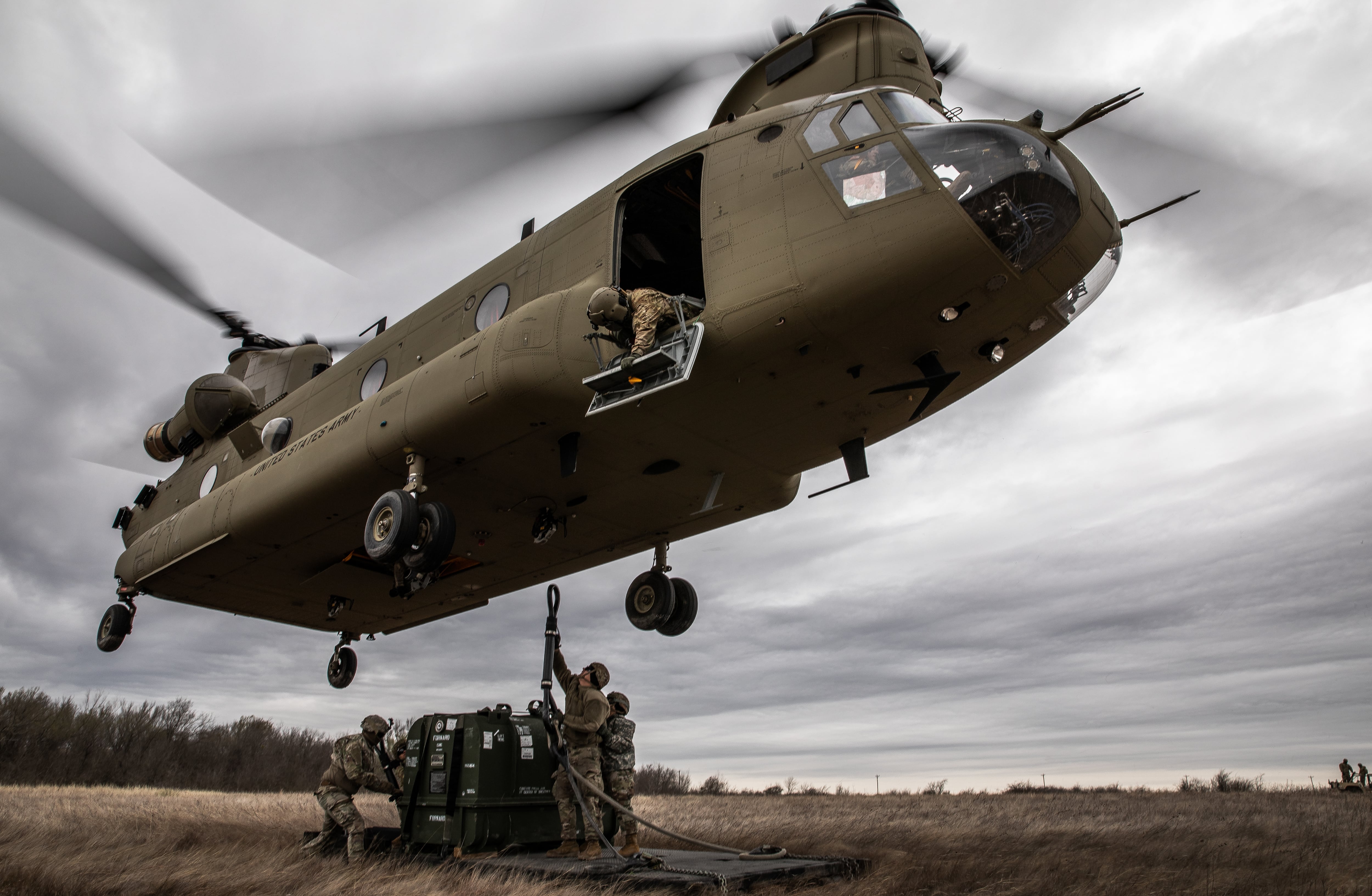WASHINGTON — The U.S. Army is hotly pursuing foreign military sales of its CH-47 F-model Chinook cargo helicopters in the hopes it will soften the blow from cuts made to its intended buy of the newest variant, according to the service’s undersecretary.
But will foreign purchases fill the void? Earlier this year, Boeing didn’t think so.
By working to push these deals through, the Army is hoping Boeing will take less of a hit to its production line after the service decided not to buy Block II Chinook helicopters for the regular Army as part of its fiscal 2020 budget request. That latest budget request focused on shifting money toward major modernization efforts to include the purchase of two brand-new vertical-lift aircraft. The service plans to field Block II helos — as G-model CH-47s — to the special operators only.
Upgrades in the Block II version include newly designed rotorblades, major changes to the drive system and other improvements like non-segmented fuel cells. The aircraft is expected to buy back roughly 4,000 pounds of additional load capacity and adds range capability.
The Army approved the Chinook Block II effort to move into the engineering and manufacturing development phase in April 2017, and the program officially began in July 2017.
“The reality of this is this is a production line that depends heavily on U.S. Army production,” Randy Rotte, Boeing’s director of business development for cargo helicopters, said at the Army Aviation Association of America’s annual summit in April.
There are more than 900 Chinooks around the world, he said, and 542 of them are U.S. aircraft. “All the internationals in the world, if they come back to upgrade to Block II, is going to have a hard time in any real quantities sustaining that production base,” he added.
The Army’s original plan, ahead of the FY20 budget request, was to build 542 Block II Chinooks — 473 "F" models and 69 "G" models.
Boeing already had a plan to cope with a four-year gap between the ramping down of Block I production and the ramping up of Block II. The reality of that delta has been known for some time, according to Chuck Dabundo, Boeing’s H-47 program manager. The goal was to bridge the gap with international orders.
RELATED

With no F-model Block II aircraft to build for the conventional force, Dabundo said, “it would be very difficult to fill a bathtub that wide” if another five years went by with no orders for the active Army.
But there is some interest in Europe and the Middle East, for instance. Germany and Israel are in the market for cargo helicopters, and Boeing is competing in both locations. But for Boeing, that’s not going to be enough.
Army Under Secretary Ryan McCarthy said at a press briefing at Fort Myer, Virginia, last week that the service is working two potential Block II Chinook sales — one with the United Kingdom and another with the United Arab Emirates — and in the more distant future the service could supply Chinooks to the Afghan National Security Forces.
McCarthy told reporters that the deals weren’t on the near horizon, despite one of those possible buys appearing on the Defense Security Cooperation Agency website in October 2018.
He said those orders could keep the Chinook production line running at “optimal levels,” but did not say for how long.
RELATED

Boeing confirmed to Defense News that both the U.K. and the UAE plan to buy more Chinooks, but not Block II versions. That version won’t complete qualification testing with the U.S. Army until 2021 and therefore can’t be offered to a foreign country until the helicopters pass through that phase.
The U.K., according to the DSCA website, wants to buy the extended-range version of the helicopter, a variant with larger fuel tanks that is similar to the Canadian version. The U.S. State Department cleared the possible sale for 16 of the Chinooks for an estimated $3.5 billion.
The UAE’s possible request has not yet posted to the DSCA website, but would amount to a smaller number than the U.K. buy, according to an industry source. The UAE is already a Chinook customer and would look to add to its fleet of 20 aircraft.
With the potential sales to the U.K. and the UAE, that amounts to less than 30 aircraft, far less than the number of Block II Chinooks the Army originally intended to buy for the regular force.
Boeing is now under contract to build 15 MH-47Gs. The first "G" model is scheduled to begin final assembly this year.
Meanwhile, Boeing is seeing some support on Capitol Hill. House appropriators, in their version of the FY20 defense spending bill, added $28 million to continue to produce CH-47 Block IIs and told the service to restore more than $900 million across a five-year period that would have paid to build the variant for the regular force.
House authorizers bumped the Army’s request from $18 million to $46 million to support the Block II program and requested a report on the impact of delaying the build of F-model Block II Chinooks until after 2024 in its version of the FY20 defense policy bill.
The Senate Armed Services Committee opted to side with the Army and did not move to restore any funding to the program.
The matter will be hashed out between the House and Senate in conference.
Jen Judson is an award-winning journalist covering land warfare for Defense News. She has also worked for Politico and Inside Defense. She holds a Master of Science degree in journalism from Boston University and a Bachelor of Arts degree from Kenyon College.








